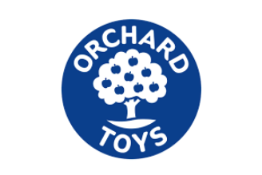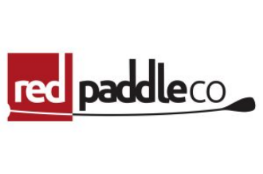Every company, and particularly a startup, needs a competitive advantage.
Knowing how to leverage your intellectual property (IP) rights, whether registered or not, can ensure a more prosperous future for your brand than others in a similar space.

Below are 5 reasons why you should prioritize protecting, managing and enforcing your IP rights for the best commercial results:
1. Having the right type of intellectual property helps prevent others from stealing it.
You can protect your name, designs, function and even smells. However, the decision as to where to protect your IP is something not to be taken lightly. While it may seem unnecessary and expensive to think outside your home territory, particularly at start-up stage, it’s worth doing so. In many territories, unscrupulous businesses exist which register your genuine IP in their names – and this can cause you severe headaches if you decide to manufacture or export to this territory in the future.
2. Carefully establishing ownership of your IP not only ensures you have future value in the business but also helps prevent future battles over similar brands or products.
Building brand recognition and reputation takes time so even when in business infancy, be proactive with filing relevant trademarks and domain names. This should prevent future mishaps or rebranding if someone else has similar ideas, simultaneously. Your formal registration/s will be valuable in the event of a dispute, saving on your having to rebrand – which would then be up to the non-registered, opposing party.
3. Early disclosure can be problematic and you shouldn’t be overly eager to disclose IP in early conversations with potential investors or prospective customers. As some IP needs to be filed before being made public – or its value is lost.
In our experience, start-ups, often eager to impress potential investors, or potential customers, often disclose what could be hugely valuable intellectual property far too early meaning it cannot be adequately protected through the formal registration processes. This has been seen time and time again with wonderful, crowd-funded products which have been hijacked by others before trademarks, design rights or even patents have had a chance to be filed. This enthusiastic but unstructured approach can be hugely detrimental for future growth.
4. Intellectual property can be owned, licensed and sold. It can belong to one person, a business or to many people, or businesses.
Potential investors, thanks to Dragon’s Den, have been known to insist on what are almost impossible IP rights before taking conversations about investment forward. Do not be deterred by this. While the ‘patent’ is always made to sound as if it’s the be-all and end-all of IP, patents can be very difficult to obtain, are not for everyone, and are hideously expensive to both register and enforce. Cheaper and hugely valuable, particularly in the fight against online IP infringement, are trademarks – which are registered – and copyright which is not. Design rights (or design patents in the US) are also very much worth considering for the look, shape, configuration and decoration (but not the function) of your product.
Investors want IP because it shows you have thought about protecting your business idea/product and you should be able to defend it if necessary. IP can also be bought and sold, so a business with good IP is worth more than one with none. And investors need a return on their investment. Always.
5. You can protect your IP while you perfect your product – so you should be thinking about it as early as possible.
Many countries require absolute novelty to obtain patent protection. This means that it’s crucial for a business to file a patent application before publicly disclosing – to anyone – your potentially patentable invention. If you do not file for the patent before disclosing your invention, it may prevent your invention from being patentable in some countries.
If you’re still developing, but keen to get filing – which can be very sensible – it’s sometimes possible to apply for a provisional patent to preserve your IP in the interim (depending on the territory). More inexpensive than full patents, this would allow you 12 months to continue your research and development and honing of your end product. Before applying for a non-provisional patent.
Do be careful when registering any IP that does actually belong to you. Just because someone in your business developed an idea, unless their contract ensures it belongs to the business, and not to them, it may not … so be thorough with employee and contractor agreements. You can use an ‘assignation’ for transferral of ownership but do it properly so that any disputes can be avoided.
At SnapDragon, while we are not trademark or patent attorneys, we live and breathe a love for intellectual property. We know how important it is to protect your IP – and we’re here to make sure you can maximise its value, protecting your business, your revenues and your customers. (And we can introduce you to lots of wonderful IP attorneys and lawyers whom can help with registrations, should this be useful).
We use IP rights to defend your brand on e-commerce platforms across the world – protecting your business, your brand, your reputation and, most importantly, your customers.
And we are here to help. For a no-obligation discussion and to learn how we can help to protect your IP simply contact us now.







